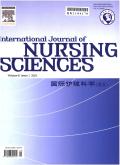Perceptions and experiences of generative artificial intelligence training to support research for Chinese nurses: A qualitative focus group study
IF 3.1
3区 医学
Q1 NURSING
引用次数: 0
Abstract
Objectives
Nurses’ clinical research activities have contributed to optimizing the care process and improving patient outcomes, and generative artificial intelligence (GAI) may help clinical nurses strengthen their research skills. To support research, this study aimed to explore the Chinese nurses’ perceptions and experiences of GAI training.
Methods
This study used a descriptive qualitative design. The China Nurses Network conducted a three-day training session on “GAI for Nursing Research” theme, we selected 23 nurses by a convenience sampling method among participating in the training. The researchers conducted three focus group interviews at the end of each day. All focus groups were interviewed face-to-face to facilitate interaction, data collection, and observation. The data were analyzed using conventional content analysis and coded manually.
Results
The results showed that nurses’ use of GAI to support scientific research was dynamic and characterized by evolving perceptions and practices. Four themes and 11 sub-themes emerged from the analysis: 1) utilization efficacy: cope with research ability, affected by many factors; 2) booster research: growth and challenges go hand in hand; 3) role reversal: from GAI-dominated to nurse-dominated; 4) beautiful dream: more features on research, more assistants on clinical care.
Conclusions
The effectiveness of GAI in supporting clinical nurses in conducting research is mainly limited by differences in personal research literacy, lack of ethical regulation, and information accuracy. In the future, it is necessary to improve nurses’ relevant skills through specialized training and promote the standardization of technical regulations to ensure the appropriate application of GAI in nursing research.
生成式人工智能培训支持中国护士研究的认知和经验:一项定性焦点小组研究
目的护士的临床研究活动有助于优化护理流程和改善患者预后,生成式人工智能(GAI)可以帮助临床护士加强研究技能。为了支持研究,本研究旨在探讨中国护士对GAI培训的认知和经验。方法本研究采用描述性定性设计。中国护士网开展了为期三天的“护理研究GAI”主题培训,我们采用方便抽样的方法从参加培训的护士中抽取了23名。研究人员在每天结束时进行了三次焦点小组访谈。所有焦点小组都进行了面对面访谈,以促进互动、数据收集和观察。数据分析采用传统的内容分析和手工编码。结果结果表明,护士对GAI支持科研的使用是动态的,具有不断变化的认知和实践特征。分析得出4个主题和11个副主题:1)利用效能:应对研究能力,受多种因素影响;2)助推器研究:成长与挑战齐头并进;3)角色转换:从人工智能主导到护士主导;4)美丽的梦想:更多的研究功能,更多的临床护理助手。结论GAI支持临床护士开展科研的有效性主要受个人科研素养差异、伦理规范缺失、信息准确性等因素制约。未来需要通过专业培训提高护士的相关技能,推动技术法规的标准化,确保GAI在护理研究中的适当应用。
本文章由计算机程序翻译,如有差异,请以英文原文为准。
求助全文
约1分钟内获得全文
求助全文
来源期刊

International Journal of Nursing Sciences
Nursing-Nursing (all)
CiteScore
6.10
自引率
2.60%
发文量
408
审稿时长
25 days
期刊介绍:
This journal aims to promote excellence in nursing and health care through the dissemination of the latest, evidence-based, peer-reviewed clinical information and original research, providing an international platform for exchanging knowledge, research findings and nursing practice experience. This journal covers a wide range of nursing topics such as advanced nursing practice, bio-psychosocial issues related to health, cultural perspectives, lifestyle change as a component of health promotion, chronic disease, including end-of-life care, family care giving. IJNSS publishes four issues per year in Jan/Apr/Jul/Oct. IJNSS intended readership includes practicing nurses in all spheres and at all levels who are committed to advancing practice and professional development on the basis of new knowledge and evidence; managers and senior members of the nursing; nurse educators and nursing students etc. IJNSS seeks to enrich insight into clinical need and the implications for nursing intervention and models of service delivery. Contributions are welcomed from other health professions on issues that have a direct impact on nursing practice.
 求助内容:
求助内容: 应助结果提醒方式:
应助结果提醒方式:


